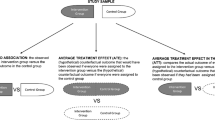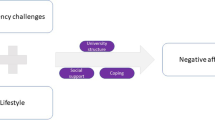Abstract
Meeting the behavioral medicine research and clinical needs of an increasingly diverse United States population is an issue of national concern. We examine the trends in the demographic representation of the behavioral medicine scientific workforce through an analysis of the training grants funded by National Institutes of Health for the field of behavioral medicine from 1980 to 2018. We report the topics of these training grants, and we depict the demographic representation of the training leaders. We provide the demographic representation of the trainees, and of the first authors of publications reported within those training grants. Finally, we report the topics addressed in these behavioral medicine publications, to determine if topic diversity increased as the behavioral medicine scientific workforce diversified. Visualizations are presented that tell a story of how we have, and have not, advanced representation within the field of behavioral medicine. Best practices for launching future successful behavioral medicine scientists are then presented, to ensure optimal representation and diversification occurs in our workforce, our science, and our delivery of our clinical care.






Similar content being viewed by others
References
Arun, R., Suresh, V., Madhavan, C. E., & Murty, M. N. (2010). On finding the natural number of topics with Latent Dirichlet Allocation: Some observations. In PAKDD ‘10 (pp. 391–402). https://doi.org/10.1007/978-3-642-13657-3_43
Ayanian, J. Z. (2015). The costs of racial disparities in health care. Harvard Business Review.
Blei, D. M. (2012). Probabilistic topic models. Communications of the ACM, 55, 77–84.
Cao, J., Xia, T., Li, J., Zhang, Y., & Tang, S. (2009). A density-based method for adaptive LDA model selection. Neurocomputing, 72, 1775–1781.
Colby, S. L., & Ortman, J. M. (2015). Projections of the size and composition of the US population: 2014 to 2060: Population estimates and projections. Retrieved October 10, 2018 from https://www.census.gov/library/publications/2015/demo/p25-1143.html
Deveaud, R., SanJuan, E., & Bellot, P. (2014). Accurate and effective latent concept modeling for ad hoc information retrieval. Document Numérique, 17, 61–84.
Foschi, M., Lai, L., & Sigerson, K. (1994). Gender and double standards in the assessment of job applicants. Social Psychology Quarterly, 57(4), 326–339. https://doi.org/10.2307/2787159.
Ginther, D. K., Schaffer, W. T., Schnell, J., Masimore, B., Liu, F., Haak, L. L., et al. (2011). Race, ethnicity, and NIH research awards. Science, 333, 1015–1019.
Griffiths, T. L., & Steyvers, M. (2004). Finding scientific topics. Proceedings of the National Academy of Sciences, 101, 5228–5235.
Jagsi, R., Griffith, K. A., Jones, R. D., Stewart, A., & Ubel, P. A. (2017). Factors associated with success of clinician-researchers receiving career development awards from the national institutes of health: A longitudinal cohort study. Academic Medicine, 92, 1429–1439. https://doi.org/10.1097/acm.0000000000001728
Johnson, M. O., & Gandhi, M. (2015). A mentor training program improves mentoring competency for researchers working with early-career investigators from underrepresented backgrounds. Advances in Health Sciences Education: Theory and Practice, 20, 683–689. https://doi.org/10.1007/s10459-014-9555-z
Kameny, R. R., DeRosier, M. E., Taylor, L. C., McMillen, J. S., Knowles, M. M., & Pifer, K. (2013). Barriers to career success for minority researchers in the behavioral sciences. Journal of Career Development, 41, 43–61. https://doi.org/10.1177/0894845312472254
Kazdin, A. E. (2016). Editor’s introduction for the special series. Clinical Psychological Science, 4, 699–700. https://doi.org/10.1177/2167702616649351
Meyers, L. C., Brown, A. M., Moneta-Koehler, L., & Chalkley, R. (2018). Survey of checkpoints along the pathway to diverse biomedical research faculty. PLoS ONE, 13, e0190606. https://doi.org/10.1371/journal.pone.0190606
National Research Council. (2011). Research training in the biomedical, behavioral, and clinical research sciences. Washington DC: National Academies Press. https://doi.org/10.17226/12983
Oh, S. S., Galanter, J., Thakur, N., Pino-Yanes, M., Barcelo, N. E., White, M. J., et al. (2015). Diversity in clinical and biomedical research: A promise yet to be fulfilled. PLoS Medicine, 12, e1001918. https://doi.org/10.1371/journal.pmed.1001918
Perneger, T. V., Poncet, A., Carpentier, M., Agoritsas, T., Combescure, C., & Gayet-Ageron, A. (2017). Thinker, soldier, scribe: Cross-sectional study of researchers’ roles and author order in the Annals of Internal Medicine. British Medical Journal Open, 7, e013898. https://doi.org/10.1136/bmjopen-2016-013898
Pfund, C., House, S. C., Asquith, P., Fleming, M. F., Buhr, K. A., Burnham, E. L., et al. (2014). Training mentors of clinical and translational research scholars: A randomized controlled trial. Academic Medicine: Journal of the Association of American Medical Colleges, 89, 774.
Rexrode, K. M. (2016). The gender gap in first authorship of research papers. BMJ: British Medical Journal (Online). https://doi.org/10.1136/bmj.i1130.
Rosmarin, D. H. (2016). Diversity science: New dawn in a Golden Age. Clinical Psychological Science, 4, 701–703.
Smedley, B., Butler, A., & Bristow, L. (2004). Institute of Medicine (US). In the nation’s compelling interest: Ensuring diversity in the health-care workforce. Washington DC: National Academy Press. https://doi.org/10.17226/10885
Sood, G., & Laohaprapanon, S. (2018). Predicting race and ethnicity from the sequence of characters in a name. arXiv preprint arXiv:1805.02109. Retrieved October 10, 2018 from https://arxiv.org/abs/1805.02109
Steinpreis, R. E., Anders, K. A., & Ritzke, D. (1999). The impact of gender on the review of the curricula vitae of job applicants and tenure candidates: A national empirical study. Sex Roles, 41(7–8), 509–528. https://doi.org/10.1023/A:1018839203698.
United States. Congress. Commission on the Advancement of Women Minorities in Science, E., Technology Development. (2000). Land of plenty: Diversity as America’s competitive edge in science, engineering and technology: Report of the congressional commission on the advancement of women and minorities in science, engineering, and technology development. Retrieved October 10, 2018 from https://www.nsf.gov/pubs/2000/cawmset0409/cawmset_0409.pdf
Valantine, H. A., Lund, P. K., & Gammie, A. E. (2016). From the NIH: A systems approach to increasing the diversity of the biomedical research workforce. CBE Life Sciences Education. https://doi.org/10.1187/cbe.16-03-0138
Vernos, I. (2013). Quotas are questionable. Nature, 495, 39. https://doi.org/10.1038/495039a
Wilder, E. L., Tabak, L. A., Pettigrew, R. I., & Collins, F. S. (2013). Biomedical research: Strength from diversity. Science, 342, 798. https://doi.org/10.1126/science.342.6160.798-a
Ye, J., Han, S., Hu, Y., Coskun, B., Liu, M., Qin, H., & Skiena, S. (2017). Nationality classification using name embeddings. In CIKM ‘17, 9E (pp. 1897–1906). https://doi.org/10.1145/3132847.3133008
Acknowledgements
The authors thank Dr. Michelle Odlum (MO) for her help on manual coding of demographics of directors and authors.
Funding
This work was supported by grants R01LM012836 and U24AG052175 from the National Institutes of Health (KWD).
Author information
Authors and Affiliations
Corresponding author
Ethics declarations
Conflict of interest
Sunmoo Yoon, Louise Falzon, Norman B. Anderson and Karina W. Davidson report no real or apparent conflicts of interest.
Human and animal rights and Informed consent
This article does not contain any studies with human participants or animals performed by any of the authors.
Additional information
Disclosures: Karina Davidson is a member of the United States Preventive Services Task Force (USPSTF). This article does not represent the views and policies of the USPSTF.
Rights and permissions
About this article
Cite this article
Yoon, S., Falzon, L., Anderson, N.B. et al. A look at the increasing demographic representation within behavioral medicine. J Behav Med 42, 57–66 (2019). https://doi.org/10.1007/s10865-018-9983-y
Received:
Accepted:
Published:
Issue Date:
DOI: https://doi.org/10.1007/s10865-018-9983-y




